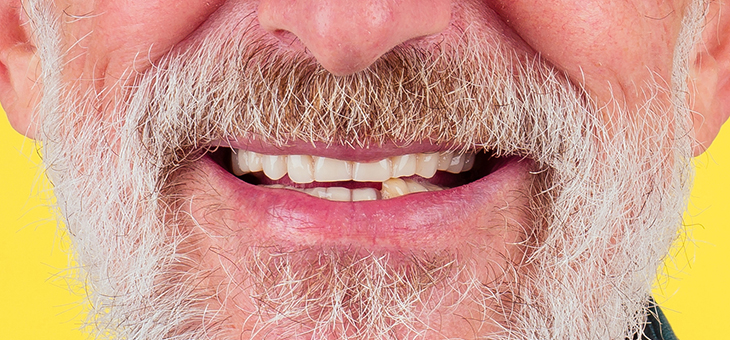Tooth loss is often accepted as a natural part of ageing, but scientists believe they may have found a way to combat the problem.
According to the Australian Dental Association (ADA), tooth decay and gum disease are two of the most common diseases experienced by elderly Australians, with 25 per cent of Australians aged 75 years and over living with untreated tooth decay.
This new dental breakthrough from the Harvard Medical School could be a game changer, providing dentists and health professionals with a better way to identify those most susceptible to losing their teeth without the need for a dental exam.
Read more: Vaccine efficiency against Delta strain revealed
The investigators suggest that machine-learning tools can help identify those at greatest risk for losing their teeth and refer them to further dental assessment in an effort to ensure early interventions to avert or delay the condition.
The study compared five algorithms using a different combination of variables to screen for those most at risk.
The results showed that the algorithms that factored medical characteristics and socioeconomic variables, such as race, education, arthritis and diabetes, outperformed algorithms that relied on dental clinical indicators alone.
Read more: Research finds fish oil can fight super bugs
The study’s lead investigator, Professor Hawazin Elani, said the machine-learning approach could be used worldwide.
“Our analysis showed that while all machine-learning models can be useful predictors of risk, those that incorporate socioeconomic variables can be especially powerful screening tools to identify those at heightened risk for tooth loss,” Prof. Elani said.
The tool could also be used in a variety of healthcare settings, including by non-dental professionals, she added.
Read more: People with dementia need more support for decision-making
Tooth loss can be physically and psychologically debilitating. It can affect quality of life, wellbeing, nutrition, and social interactions.
The process can be delayed, even prevented, if the earliest signs of dental disease are identified, and the condition treated promptly. Yet, many people with dental disease may not see a dentist until the process has advanced far beyond the point of saving a tooth.
The ADA’s submission to the National Preventive Health Strategy made the point that changes in the quality of life in the elderly, resulting from oral disease, could be prevented or minimised with earlier intervention.
This is precisely where screening tools could help identify those at highest risk and refer them for further assessment, according to the Harvard research team.
In the study, the researchers used data from nearly 12,000 adults to design and test the five algorithms and assess how well they predicted both complete and incremental tooth loss among adults based on socioeconomic, health, and medical characteristics.
The algorithms were designed to assess risk without a dental exam.
The researchers explained that anyone deemed at high risk for tooth loss would still have to undergo an actual dental exam.
“Our findings suggest that the machine-learning algorithm models incorporating socioeconomic characteristics were better at predicting tooth loss than those relying on routine clinical dental indicators alone,” Prof. Elani said.
“This work highlights the importance of social determinants of health. Knowing the patient’s education level, employment status, and income is just as relevant for predicting tooth loss as assessing their clinical dental status.”
It has long been known that low-income populations are exposed to a disproportionate level of tooth loss, likely due to poor access to dental care.
The ADA has previously warned that many Australian adults are unable to pay for dental care but are also not eligible for public dental services, leading to this group falling between the cracks when it comes to their oral health.
Would you support dental care being made part of Medicare? Should more be done to stop older Australians losing their teeth. Do you think this tool will lead to more early intervention to prevent tooth loss? Why not share your thoughts in the comments section below?
If you enjoy our content, don’t keep it to yourself. Share our free eNews with your friends and encourage them to sign up.

